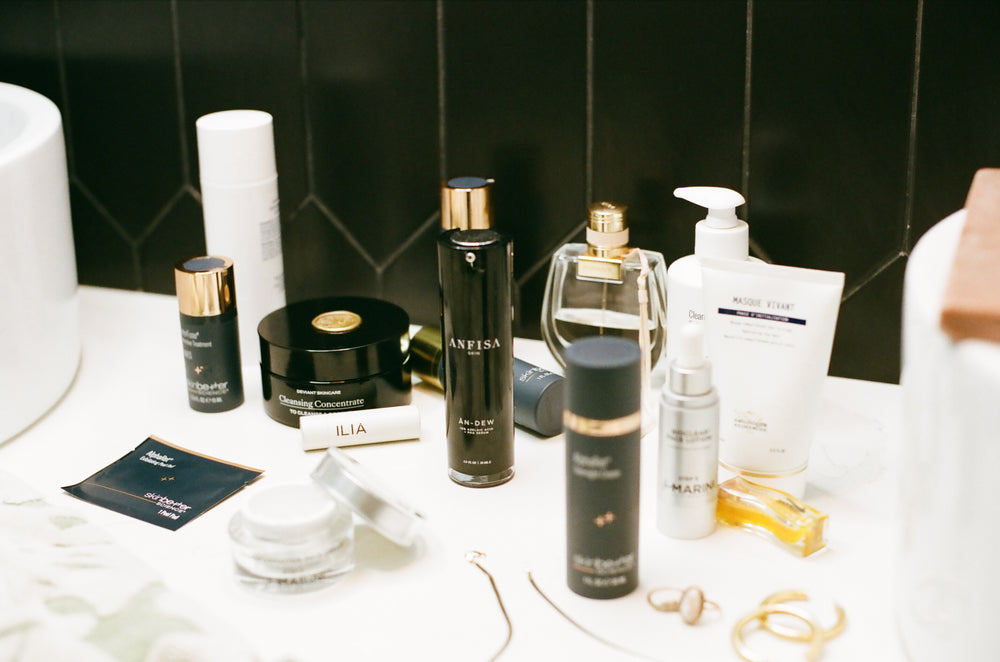What Does Retinol Do for Your Skin? Let the Research Tell the Story
Retinol which derived from vitamin A, is called dermatology’s “gold-standard” anti-aging ingredient for good reason. Clinical trials and medical research have shown that it enhances collagen production, thickens the skin, accelerates cell turnover, smooths texture, and improves uneven pigmentation. Let’s dive into how it works, what the science says, and which Skinbetter, Deviant, and Jan Marini formulas we love for real results at Skin Junkies Studio.
1. Retinol’s Mechanism: What the Science Reveals
At the molecular level, retinoids (including retinol) bind to retinoic acid receptors (RAR/RXR) in the skin’s cells, changing gene expression to stimulate:
- Keratinocyte proliferation—thickening the epidermis and strengthening skin.
- Collagen synthesis and inhibition of degradative enzymes—creating firmer, more resilient dermal structure.
- Reduced transepidermal water loss (TEWL)—reinforcing the skin barrier.
- Fading of fine wrinkles—via increased glycosaminoglycans and collagen. A landmark randomized study showed significant wrinkle improvements after 24 weeks of 0.4% retinol.
Additional research underscores these effects—retinoids improve skin texture, elasticity, epidermal and dermal thickness, and even pigmentation.
2. Clinical Evidence We Trust
- Kafi et al. (2007): A double-blind trial of 0.4% retinol demonstrated marked reduction in fine wrinkles, along with increased collagen and glycosaminoglycan content after 24 weeks.
- Harvard Health: Retinoids like tretinoin promote collagen production and stimulate new blood vessel formation, improving skin tone and reducing age spots—though visible results typically take 3–6 months.
- Quan et al. (2023): Comprehensive review showed retinoids enhance skin thickness and texture by promoting dermal and epidermal repair.
3. Limitations of OTC Retinol
A 2021 review found that while many over-the-counter retinol products claim to reduce wrinkles, the quality of clinical data is often weak. However, prescription-strength retinoids (like tretinoin) have consistently shown robust anti-aging results.
Still, stabilized, well-formulated OTC options—especially from reputable medical-grade lines—can deliver noticeable, irritation-minimized benefits when used correctly and consistently. That’s where AlphaRet and similar formulas shine.
4. Our Favorite Retinoid Products at Skin Junkies Studio
Here are our go-tos:
Skinbetter Science AlphaRet Line
- AlphaRet Clearing Serum – Combines retinoid and gentle AHA for texture, aging, and acne support.
- AlphaRet Overnight Cream – Richer cream with time-release retinoid to smooth fine lines with less irritation.
- AlphaRet Intensive – Stronger formulation for experienced users targeting deeper signs of aging.
- AlphaRet Peel Pads – A robust at-home peel option combining exfoliation with retinoid for brighter, resurfaced skin.
Deviant Skincare – Post Retinol Clarity Serum
Designed to soothe and boost skin after retinoid use. Calms inflammation while supporting barrier recovery. Includes salicylic acid for additional benefits to acne prone skin.
Jan Marini – Age Intervention Retinol Plus
Advanced formula combining retinol with anti-aging peptides to smooth texture, enhance firmness, and address fine lines comprehensively.
5. Smart Usage: Start Slow, Protect, and Be Consistent
Even with potent formulas, smart application is essential:
- Start with every-other-night or every-third-night to build tolerance.
- Always use in your nighttime routine—retinol increases sun sensitivity.
- Moisturize before and after to buffer irritation.
- Expect initial dryness or flakiness—the “retinization phase” lasts 2–4 weeks.
- Stunning results typically appear gradually—in about 3–6 months for fine lines, longer for deeper aging.
- Use sunscreen daily as retinoids thin the top layer of dead cells, which actually helps increase hydration and youthful appearance, but increases UV vulnerability.
6. Pairing with Other Treatments
Adding treatments like microchanneling, chemical peels, or laser resurfacing can enhance collagen and visibly accelerate results—especially after your skin has acclimated to retinoids. Always discuss timing and compatibility during your consultation.
7. Final Thoughts
Retinol remains one of the most powerful anti-aging tools—backed by decades of clinical research. While prescription retinoids deliver stronger results, medical-grade OTC options like AlphaRet and Jan Marini’s Age Intervention offer a highly effective, more accessible path. Used properly—gradually, respectfully, consistently—retinol improves texture, tone, collagen density, and clarity over time.
Ready to build or upgrade your retinol regimen? Book a consultation with us to find your perfect fit and treatment timeline for genuine, sustainable skin transformation.
- 🌐 Website: skinjunkiesstudio.com
- 📅 Book a Consult: Facial Menu
- 📩 Email: hello@skinjunkiesstudio.com
- 📲 Instagram: @skin.junkies
References
- Mukherjee et al., Retinoids for Treatment of Photoaging (2006)
- Zasada, Anti-Wrinkle Properties of Retinoids (2019)
- Kafi et al., Improvement of Naturally Aged Skin with Retinol (2007)
- Harvard Health: Retinoids & Wrinkles (2025)
- Spierings, Retinol OTC Evidence Review (2021)
- Who What Wear: Best Retinol Creams (2025)
- Byrdie: How Long for Retinol to Work

